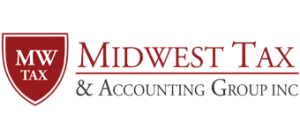June 2018
THIS MONTH: |
|
|
June 15th
2nd quarter estimated taxes due |
|
|
June 15th
2017 tax deadline for Americans living abroad |
|
|
June 17th
Father’s Day |
|
Summer is the perfect time for clients to schedule a tax planning session. Our lead article outlines why. Also included is a recap of home ownership tax breaks, some unconventional vacation ideas, and finally five great financial tips everyone should know.
Tax Planning Time
Now is the ideal time to schedule a tax planning session. Your 2017 tax return outcome is still fresh, and it’s early enough in the year to take advantage of the numerous tax law changes taking place in 2018. Here’s a brief overview of some of the new tax issues that you need to plan for now.

- Income
Tax rates for both individuals and small businesses have changed substantially. Income tax deductions have also changed drastically, including a nearly doubling of the standard deduction and elimination of personal exemptions and miscellaneous itemized deductions.It’s important to review your income tax withholding schedule to see where you fall in the new income tax bracket structure. Small adjustments here could save you hundreds.
- Bunching
Because of the changes to the deductions structure, using itemized deductions may now require bunching two or even three years of expenses into one tax year. Things like donations to charity and medical expenses that you may have spread across several years are now better bunched into a single year to maximize your tax savings.If you typically take care of medical expenses or charitable donations at a regular time every year, hold off this year until you have a new tax-efficient plan.
- SALT (State and local taxes)
There’s now a $10,000 combined total cap on deductions of state and local income, sales and property taxes, which is going to impact a lot of people, especially in high-tax states. This may be a big factor to account for if you’ve relied on this deduction in the past.Get an analysis done to see how much larger your tax bill is going to be because of the cap on SALT taxes. There may not be much you can do about it, other than changing where you live and own property, but you’ll need to have a clear picture of how it will impact your tax return in 2018.
- Mortgage interest changes
There are several new rules changing how mortgage interest is deducted. You can no longer deduct the interest on mortgage indebtedness greater than $750,000. And you can no longer deduct interest on mortgage indebtedness that wasn’t spent directly on buying, building or substantially improving your home.If you have previously claimed a home equity loan interest deduction, you’ll need to review how this will affect your itemized deductions.
These are just a few examples of things that you’ll need to review in the wake of the largest tax law change in more than 30 years. Take some time this summer to make sure you have a plan in place.
Six Home Ownership Tax Benefits
If you own or are considering purchasing a home, you can take advantage of many tax benefits. Here are six of the most commonly used homeowner tax breaks:

- Mortgage interest deduction. You can deduct the interest you pay in your monthly mortgage bill when you itemize deductions on your tax return. This can be a huge benefit, especially in the early years of a mortgage. That’s because typically about 80 percent of your mortgage bill in your first year of home ownership on a 30-year mortgage goes toward interest. Principal payments typically don’t exceed interest until year 18 of a 30-year mortgage.Note: This benefit is capped to apply to $750,000 in indebtedness for new loans beginning in 2018 ($1 million for loans taken out in 2017 or earlier).
- Property tax deductions. You can deduct up to $10,000 in combined state and local taxes. Called the SALT deduction, this can be used to deduct local property taxes, state income taxes, and state and local sales taxes.
- Closing cost deductions. You can deduct some of the closing costs of a home purchase in the year you buy it. This includes things like real estate taxes and mortgage discount points you pay up front to lower your interest rate over the life of your loan. Because each point costs 1 percent of your total mortgage amount, the tax deduction on these costs can be substantial.
- Home improvement tax breaks. If you take out a second mortgage or what is commonly called a home equity mortgage and use it to buy, build or substantially improve your home, you can deduct the interest on that loan from your taxes. This feature is now grouped into your total mortgage indebtedness, which is capped at $750,000.Caution: Interest on home equity loans used for any other means (e.g., to pay down credit card debt or to purchase a car) is no longer deductible.
- Energy-efficiency tax breaks. There are special tax breaks available for renewable energy and energy-efficiency upgrades to your house:
a. The cost to buy and install solar, wind and geothermal equipment to your main residence or a second home can be deducted by 30 percent. b. Energy-efficient upgrades can be deducted by 100 percent for items such as central air conditioning, furnaces and water heaters, capped at a total of $500. - Capital gains exclusion. You have the ability to exclude up to $250,000 of profits (or $500,000 if you are married) from the sale of your home, as long as it’s your primary residence and you’ve lived there at least two years.Remember, if you’re thinking of buying a home, you’ll want to make a tax review part of your preparation. Because the tax deductions on mortgage interest and points can be so substantial in the early years of home ownership, they may factor in to how much home you can afford.
Unconventional Summer Vacation Ideas
Summer is often the perfect time for a vacation that provides a mental break and rejuvenates you. The typical idea is to travel somewhere to relax, dine at nice restaurants and see the sights.
While the typical vacation can be fun, why not try something new? Here are some unconventional summer vacation ideas that may be rewarding to you and your family:

The edu-vacation
There are many full-day or weeklong courses centered around a special theme available during the summer months. If you live by or can travel to a major city, you can often find instruction in interesting subjects such as:
- Cooking
- Creative writing
- Dancing
- Foreign languages
- Martial arts and self-defense
- Painting
- Sculpture
- Woodworking
If you’re closer to wilderness areas, you can often find courses in things like:
- Camping and outdoor survival
- Scuba diving
- Canoeing and kayaking
- Target shooting and gun safety
- Whitewater rafting
The great thing about an edu-vacation is that it engages your brain and gives you a purpose behind your time off. Not only will your mind be refreshed, you may come away with a new hobby and a memorable experience.
The active stay-cation
Many people live in interesting places that tourists come to visit, but they don’t ever take the time to enjoy those things themselves. Why not? Try an active stay-cation where you use the time to look at the place you live with fresh eyes. Here are some things you could do:
- Take a guided tour of your city or a nearby city. Trolley cars and bus tours are geared toward foreign visitors, but you may be surprised how much you can learn about the place you live.
- Visit historical sites, local museums and art galleries.
- Tour the local environs. Take a day trip by car, bicycle, canoe or by foot to explore a nearby area you’ve never visited.
Active stay-cations are great because they are cheap and they can give you a greater appreciation for the history and culture of the place you live. You’ll likely come away with ideas about new things to try out, places to visit and community groups to join.
The project vacation
During a project vacation, you may hardly leave the house! Instead take a week or two off to focus on a creative project. Consider:
- Creating a garden, landscaping or building a deck.
- Creating a work of art, like a sculpture or painting.
- Making or refurbishing a piece of furniture.
- Beginning creation of a novel, memoir or nonfiction book.
- Restoring and updating something you value, like an old car or motorcycle, or redecorating your house.
Project vacations are very meditative because they focus intensely on a hobby or interest, which can be even more refreshing than sitting on a beach.
Enjoy your time off this summer, whether you take a standard vacation or an unconventional one.
Five Great Finance Tips Everyone Should Know
Avoid hard-won experience and costly mistakes by taking advantage of these five personal finance tips.

- Pay yourself first
Paying yourself first means taking a percentage of everything you earn and saving it. Consider it as important as any other bill you pay each month. This is a fundamental rule of personal finance that when used properly can help build an emergency fund and save you from living paycheck to paycheck. - Calculate compound interest by using the Rule of 72
You can roughly calculate the number of years compound interest will take to double your money using the Rule of 72. Simply divide 72 by the rate of return to rough out how long it takes to double your money. For example, 10 percent compound interest will double a sum in 7.2 years; 8 percent in nine years. It’s a concept that helps us understand the power of saving and investment. - Avoid debt
Unpaid debt is like compound interest, but in reverse. If left unaddressed, it grows exponentially over time as interest and fees add to the original balance due. The result is that you have to work harder and earn more to pay for the items you purchased.Why not save first, then purchase your dream item? When done this way, the purchase price is limited to what you paid for the item, rather than adding the burden of debt over time. - Understand amortization
When a bank loans you money, it gives you a certain interest rate and a set number of years to pay it back. Each payment you make contains interest as well as a reduction of the amount owed, called principal. Most of the interest payments are front-loaded, while the last few payments are virtually all principal. A smart consumer knows this and tries to make additional interest payments at the beginning of the term. This will dramatically reduce the number of payments required to pay back the loan. - Take advantage of tax deductions, credits and capital gains
Tax laws are complicated and made even more complex when the rules change. There are many tax deductions and credits to take advantage of, as well as strategies to minimize capital gains tax. Why leave money on the table just because you don’t know the rules? Ask for help and ask for it early in the year. The power of getting the right tax plan in place every year is definitely something everyone should know about.






